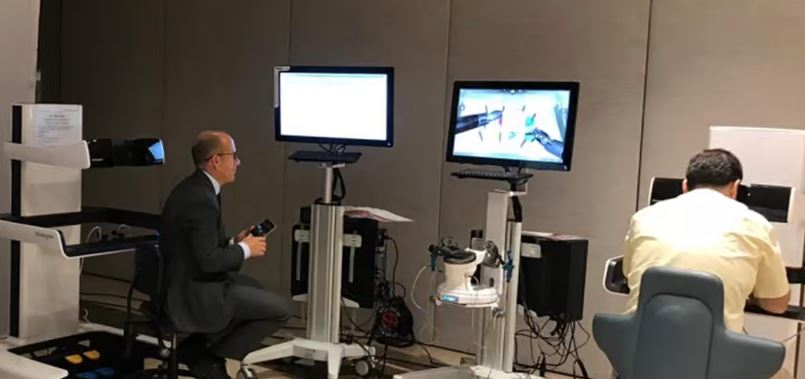Success Story – University of Worcester, UK
Company Size
1,000+
Region
- Europe
Country
- United Kingdom
Product
- ARCHIBUS
- ARCHIBUS Space Console
- Call Center Wizard
Tech Stack
- Mobile Framework
- Data Integration
Implementation Scale
- Enterprise-wide Deployment
Impact Metrics
- Customer Satisfaction
- Environmental Impact Reduction
- Productivity Improvements
Technology Category
- Functional Applications - Computerized Maintenance Management Systems (CMMS)
- Functional Applications - Enterprise Asset Management Systems (EAM)
- Functional Applications - Remote Monitoring & Control Systems
Applicable Industries
- Education
Applicable Functions
- Facility Management
- Maintenance
Services
- Software Design & Engineering Services
- System Integration
About The Customer
The University of Worcester is a leading university in the west of England, known for its rapidly expanding research program and award-winning research library, The Hive. With over 10,000 students and 1,000+ staff, the university spans 5 sites and 180 acres, comprising 60+ buildings and 900,000 sq ft of space. The university is committed to providing an optimal learning environment and has been recognized for its innovative approaches to education and facilities management.
The Challenge
The University of Worcester aimed to modernize their maintenance procedures and create a help desk to improve performance and reporting standards. They needed to integrate data, manage workflows with a new help desk, and implement mobile working. The challenge was to ensure data accuracy, avoid duplication, and empower students and craftspeople while maintaining accountability and efficiency.
The Solution
The University of Worcester implemented ARCHIBUS to modernize their maintenance procedures. They began with data integration, ensuring data accuracy and consistency across systems. Using the ARCHIBUS Space Console, they coded room numbers and gathered accurate space data. The help desk was then launched, allowing students to generate work requests directly, which streamlined workflows and improved accountability. To further enhance efficiency, the university introduced mobile working for craftspeople, enabling them to manage jobs in the field and reducing reliance on the central office.
Operational Impact
Quantitative Benefit

Case Study missing?
Start adding your own!
Register with your work email and create a new case study profile for your business.
Related Case Studies.

Case Study
IoT platform Enables Safety Solutions for U.S. School Districts
Designed to alert drivers when schoolchildren are present, especially in low-visibility conditions, school-zone flasher signals are typically updated manually at each school. The switching is based on the school calendar and manually changed when an unexpected early dismissal occurs, as in the case of a weather-event altering the normal schedule. The process to reprogram the flashers requires a significant effort by school district personnel to implement due to the large number of warning flashers installed across an entire school district.

Case Study
Revolutionizing Medical Training in India: GSL Smart Lab and the LAP Mentor
The GSL SMART Lab, a collective effort of the GSL College of Medicine and the GSL College of Nursing and Health Science, was facing a challenge in providing superior training to healthcare professionals. As clinical medicine was becoming more focused on patient safety and quality of care, the need for medical simulation to bridge the educational gap between the classroom and the clinical environment was becoming increasingly apparent. Dr. Sandeep Ganni, the director of the GSL SMART Lab, envisioned a world-class surgical and medical training center where physicians and healthcare professionals could learn skills through simulation training. He was looking for different simulators for different specialties to provide both basic and advanced simulation training. For laparoscopic surgery, he was interested in a high fidelity simulator that could provide basic surgical and suturing skills training for international accreditation as well as specific hands-on training in complex laparoscopic procedures for practicing physicians in India.

Case Study
Implementing Robotic Surgery Training Simulator for Enhanced Surgical Proficiency
Fundacio Puigvert, a leading European medical center specializing in Urology, Nephrology, and Andrology, faced a significant challenge in training its surgical residents. The institution recognized the need for a more standardized and comprehensive training curriculum, particularly in the area of robotic surgery. The challenge was underscored by two independent studies showing that less than 5% of residents in Italian and German residency programs could perform major or complex procedures by the end of their residency. The institution sought to establish a virtual reality simulation lab that would include endourological, laparoscopic, and robotic platforms. However, they needed a simulator that could replicate both the hardware and software of the robotic Da Vinci console used in the operating room, without being connected to the actual physical console. They also required a system that could provide both basic and advanced simulation training, and a metrics system to assess the proficiency of the trainees before they performed surgical procedures in the operating theater.

Case Study
Edinburgh Napier University streamlines long-distance learning with Cisco WebEX
• Geographically dispersed campus made in-person meetings costly and inconvenient.• Distance-learning programs in Malaysia, India, and China required dependable, user-friendly online tools to maximize interaction in collaborative workspaces.• Virtual learning environment required a separate sign-in process, resulting in a significant administrative burden for IT staff and limited adoption of collaboration technology.

Case Study
8x increased productivity with VKS
Before VKS, a teacher would spend a lot of time showing a group of 22 students how to build a set of stairs within a semester of 120 hours. Along with not leaving the teacher much time to provide one-on-one support for each student to properly learn carpentry, it also left a considerable amount of room for error. Key information would be misinterpreted or lost as the class was taught in the typical show-and-tell way.

Case Study
Scalable IoT Empowering GreenFlex's Sustainable Growth
GreenFlex, a company that supports sustainable development, decarbonization, and energy efficiency, faced several challenges in its quest to expand its business. The company needed to deploy a robust and sustainable IoT technology to support its growth. It was crucial for them to monitor and control devices at customer sites in a safe and reliable manner. They also needed to integrate devices across a range of communication protocols and gather and act on data to meet efficiency targets. GreenFlex had previously built IoT capabilities into its digital platform, GreenFlexIQ, to monitor and manage customer sites remotely. However, they soon realized that they needed a new platform to support their ambitions. They needed a platform that could scale to connect more devices for production management and make it easier for the operations team to manage devices in the field.


